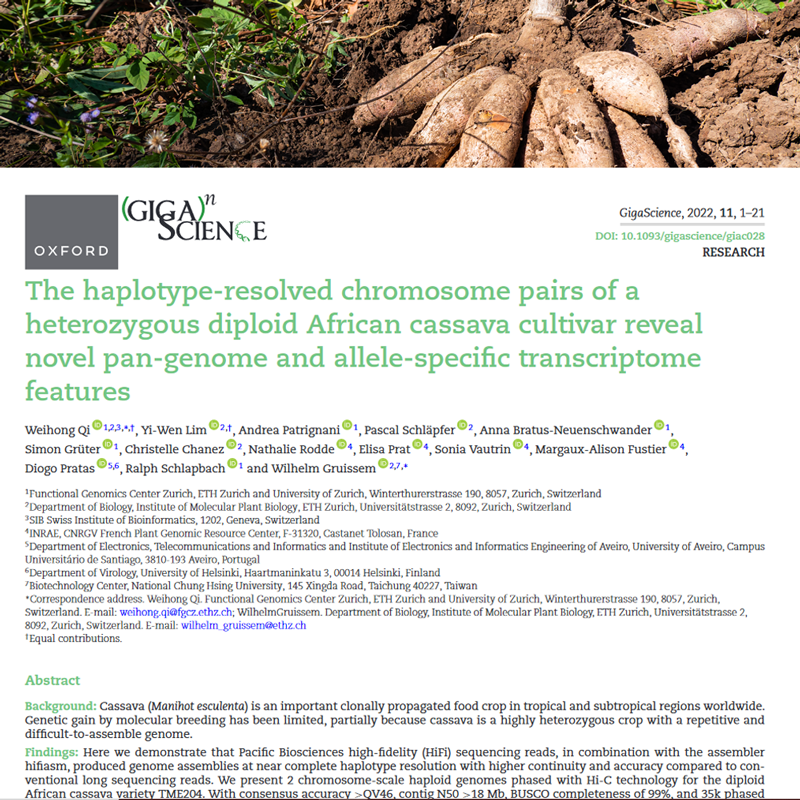Cassava (Manihot esculenta TME204) is a widely grown food crop in tropical and subtropical regions.
Despite its importance for nutrition, to date, genetic gain from cassava molecular breeding has been limited, particularly due to the lack of a quality reference sequence.
The assembly of the cassava genome is difficult due to the high level of heterozygosity of the plant, a frequent occurrence when plants are grown in populations. To solve this difficulty, the Pacbio Hifi technology of sequencing has been choosen. The quality of sequences allowed to do the assembly by separating the two haplotypes.
We contributed to this project by building a BAC library to validate the correct assembly of the haplotypes by comparing the sequences of BAC clones with the sequence of the complete genome.
To do so, we built a BAC library of the genotype of interest and sequenced several BAC clones of about 100 Kb.
The contigs obtained for each clone were used to verify their good alignment with the haplotypic sequences produced.
The genome in its haplotypic version was then annotated and constitutes a valuable resource for breeding new varieties and for cassava research.
This project was conducted in close collaboration with the Functional Genomics Center Zurich of ETH Zurich and University of Zurich and the Department of Biology, Institute of Molecular Plant Biology of ETH Zurich.

